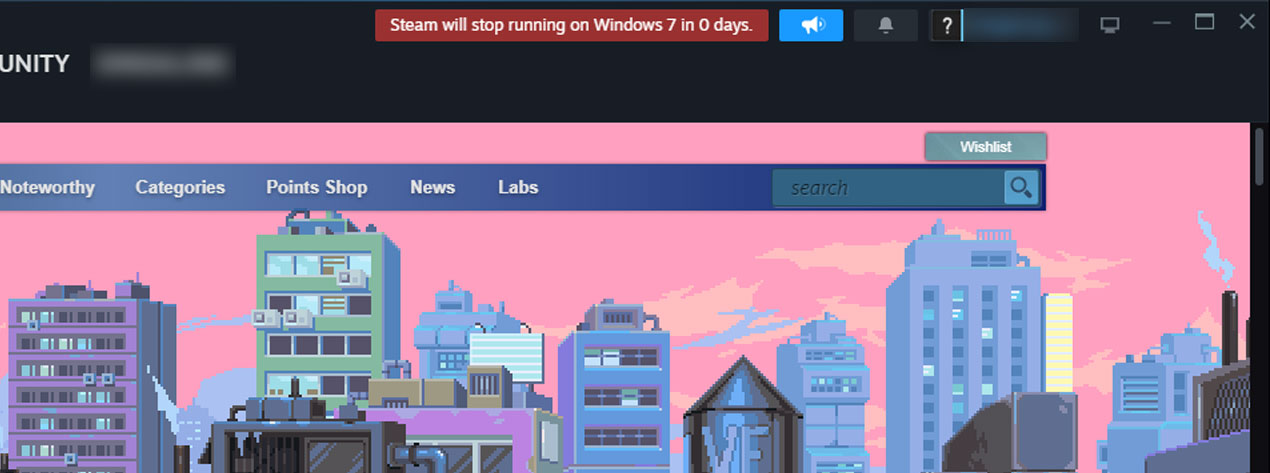Steam is no longer supported on Windows 7, Windows 8, and Windows 8.1 as of January 1, with the company recommending users upgrade to a newer operating system.
The gaming company warned last year that the Steam client would be unsupported in the New Year, displaying a countdown at the top of the gaming client showing how many days before the game client will no longer receive software updates.
The Steam client now shows 0 days left, linking to a support article about the end of support.

Source: BleepingComputer.com
“As of January 1 2024, Steam will officially stop supporting the Windows 7, Windows 8 and Windows 8.1 operating systems,” reads the support article.
“After that date, existing Steam Client installations on these operating systems will no longer receive updates of any kind including security updates.”
“Steam Support will be unable to offer users technical support for issues related to the old operating systems, and Steam will be unable to guarantee continued functionality of Steam on the unsupported operating system versions.”
Microsoft stopped supporting Windows 7 on January 14, 2020, and Windows 8.1 reached the end of support on January 10, 2023.
Microsoft offered the enterprise two years of extended security updates. However, this paid service plan expired in January 2023, causing all Windows 7 installations to no longer be supported and protected from new vulnerabilities and cybersecurity threats.
Steam recommends users upgrade to a supported version of Windows, such as Windows 10 or 11.
However, Windows 10 officially reaches end of support on October 14, 2025, making Windows 11 a more attractive target if you do not wish to keep upgrading the operating system.
While the Steam client still works on Windows 7 and 8.1, Steam says they cannot “guarantee continued functionality” after January 1.
“This change is required as core features in Steam rely on an embedded version of Google Chrome, which no longer functions on older versions of Windows,” continues the support document.
“In addition, future versions of Steam will require Windows feature and security updates only present in Windows 10 and above.”
This change should not impact too many users, as the December 2023’s Steam Hardware Survey indicates that only 0.89% use one of these unsupported Windows versions.
Aiming to boost security
Steam also warns that using older versions of Steam could cause systems to be vulnerable to new security flaws and the rise of information-stealing malware that attempts to steal your saved credentials.
Steam developers have been increasingly targeted by threat actors who steal credentials using malware to conduct supply chain attacks via malicious game updates.
Due to this, Valve has been tightening security on its platform by now requiring SMS-based security checks from game developers pushing an update on the default release branch on Steam.
However, SMS-based verification is insufficient to stop a determined threat actor, who can attempt to perform SIM swapping attacks on a developer to gain access to their mobile number.
For stronger protection, Valve should require developers to configure multi-factor authentication using security keys or authentication before they can publish updates.
